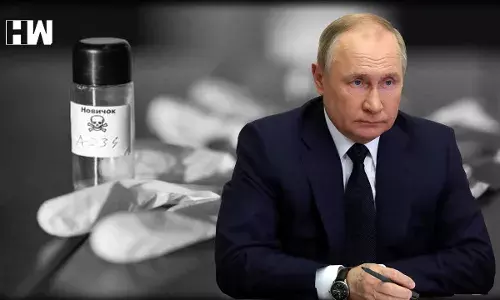According to multiple reports, Russian oligarch Roman Abramovich and Ukrainian peace negotiators suffered symptoms of suspected poisoning after a meeting in Kyiv earlier this month.
Following the March 3 meeting in Kyiv, Mr. Abramovich, Ukrainian lawmaker Rustem Umerov and another negotiator developed symptoms that included red eyes, constant and painful tearing, and peeling skin on their faces and hands, people familiar with the matter said.
According to WSJ report, a person familiar with the matter said that Mr. Abramovich was blinded for a few hours and later had trouble eating.
Some people familiar with the matter, as per WSJ, blamed the suspected attack on hard-liners in Moscow who they said wanted to sabotage talks to end the war. However, a person close to Mr. Abramovich said it wasn’t clear who had targeted the group.
Though, to their relief, Mr. Abramovich and others involved in the incident since have improved, and their lives aren’t in danger, sources informed.
Ukraine’s president, Volodymyr Zelensky, who has met with Mr. Abramovich, wasn’t affected, people said. Mr. Zelensky’s spokesman said he had no information about any suspected poisoning, as per the WSJ report.
It was hard to determine whether the symptoms were caused by a chemical or biological agent or by some sort of electromagnetic-radiation attack, Western experts who looked into the incident said.
The Kremlin did not respond to the WSJ’s request for a comment on the issue.
Christo Grozev, an investigator with the Bellingcat open-source collective who concluded that a Kremlin team poisoned Russian opposition politician Alexei Navalny with a nerve agent in 2020, had organized investigation in this case as well.
He saw the images of the effects of the attack on Mr. Abramovich and Ukrainian negotiators, Mr Grozev said, adding that examinations of the affected individuals couldn’t be arranged in the western Ukrainian city of Lviv, through which they were traveling, because these people were in a hurry to get to Istanbul. He said that too much time had passed for the suspected poison to be detected by the time a German forensic team was able to perform an examination.
“It was not intended to kill, it was just a warning,” Mr. Grozev said.
The three men who are suspected to have been poisoned consumed only chocolate and water in the hours before the symptoms appeared, the Bellingcat said, adding the men went to an apartment in Kyiv that night after the talks concluded and began to feel ill.
Mr. Abramovich, who has longstanding links to President Vladimir Putin, became involved in attempts to end the war in Ukraine shortly after Moscow launched the invasion on Feb. 24, people familiar with the matter said.
This is not the first time that Kremlin has been accused of poisoning its opponents.
Pro-Western Ukrainian presidential candidate Viktor Yushchenko was poisoned in 2004. The poisoning left his face disfigured. Mr. Yushchenko, who became president after protests known as the Orange Revolution, blamed the attack on Russia.
Sergei Skripal, a former Russian military officer who defected to the U.K, and his daughter Yulia, had also faced nerve-agent attack in 2018. Britain blamed Russia’s intelligence services for the attack. Both survived, as did a British police officer hospitalized after contact with the poison. A British woman later died after accidentally coming into contact with the nerve agent.
Alexie Navalny, who’s in Russian jail right now, was poisoned with a Novichok nerve agent and was hospitalized in serious condition. When Mr Navalny was poisoned in August 2020 and collapsed on an internal flight in Siberia, he was flown to Germany for emergency medical treatment. As he recovered, he said he intended to return to Russia. On his return, he was picked up by Russian police from airport.
As an independent media platform, we do not take advertisements from governments and corporate houses. It is you, our readers, who have supported us on our journey to do honest and unbiased journalism. Please contribute, so that we can continue to do the same in future.

